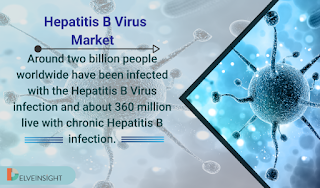CAR-T Cell Therapy Market is set to dominate the Biotech industry
Inherent qualities of immune system
The immune system of the body is primarily employed to protect
the body and build a strong defence against various sorts of infections and
chronic diseases.
Workhorses of the Immune system forms the backbone of the CAR-T gene therapy
Comprising of billions of cells including, the Lymphatic system
consists of bone marrow, spleen, thymus and lymph nodes. Bone marrow produces
the T-lymphocytes (T-Cells), which mature in thymus and are stored in spleen.
T-cells which help B-lymphocytes in antibody forming, travel throughout the
body to fight infection and kill cancerous cells in the body.
The whole essence of the CAR-T cell therapy is based on the
property of the T-cells to defend the immune system.
CAR-T cell therapy involves the venepuncture to get the samples
of the T cells. These T-cells then are genetically engineered to produce
receptors on their surface called chimeric antigen receptors, or CARs.
CAR-T cell therapy often called adoptive cell transfer (ACT),
has captured the attention of the researchers worldwide due to the remarkable
outcomes it produced in all of those patients for whom all the other treatments
failed to bring relief.
The recent advancements have swept the healthcare industry by
storm. Without a doubt, CAR-T cell therapy is a hope that cancer patients are
holding onto. The three main gene therapies approved for cancer are Oncorine
(Shanghai Sunway Biotech, Provenge (Dendreon Therapeutics), Imlygic (Amgen),
and Kymirah (Novartis) and Yescarta (Gilead Sciences).
Global Cancer Gene therapy market was observed to be USD 133
billion in 2017, and the figure is projected to reach USD 180—200 billion over
the next five years. As per DelveInsight, a global leading Healthcare Market
consulting and research firm, out of all the Gene therapies, half of them are
based on oncolytic vectors for targeting cancer.
Oncorine, approved in China in the year 2006, a product of
Shanghai Sunway Biotech, reported the sales of USD 1 Million in the year
2017.
On the other hand, Amgen's Imlygic, in similar lines of
Oncorine, is an oncolytic virus-based gene therapy, reported the sales of
around USD 45 Million. Valeant's Provenge, despite facing several hurdles like
manufacturing issues and a strong face-off with Zytiga and Xtandi, was able to
grab the maximum Cancer gene therapy market share of around USD 164 Million. In
2018, the company boasted of treating around 4000 patients every year with its
cancer gene therapy- Provenge- out of the total 40,000 patients.
However, the journey has not been and will never be easy for the
pharmaceuticals working towards advancing the CAR-T use for treating different
types of cancers.
Downsides of CAR-T gene therapy
The downfall of Dendreon Therapeutics is a classic example of
the impact of a financial burden on the developer company when it comes to the
development, approval and revenue generation after commercialization of the
gene therapies.
The attached cost of the therapy like for Kymriah the annual
cost is around USD 475,000 and USD for Yescarta it's 75,00USD, always makes it
unattainable for the patients who are in dire need of the treatment.
Despite major setbacks and underwhelming responses, the CAR-T
cell therapy has kept on moving forward, and today nearly 30+ active companies
are developing around 47 gene therapies as both monotherapy and in combination
in multiple oncological indications.
Key companies developing CAR-T gene therapies
Several major players, such as Takara Bio, Advaxis, SillaJen,
OncoSec, Advantagene, MultiVir and many others are involved in CAR-T pipeline
development targeting numerous cancer indications.
Last decade saw the collaboration and partnership between
several companies and institutes for developing the CAR-T therapies using
advanced proprietary drug delivery platforms.
Among them, Advaxis, Advantagene, Inovio Pharmaceuticals,
Marsala Biotech and SillaJen are leading the race with their products in
pivotal stages of development.


Comments
Post a Comment